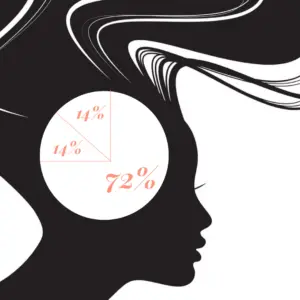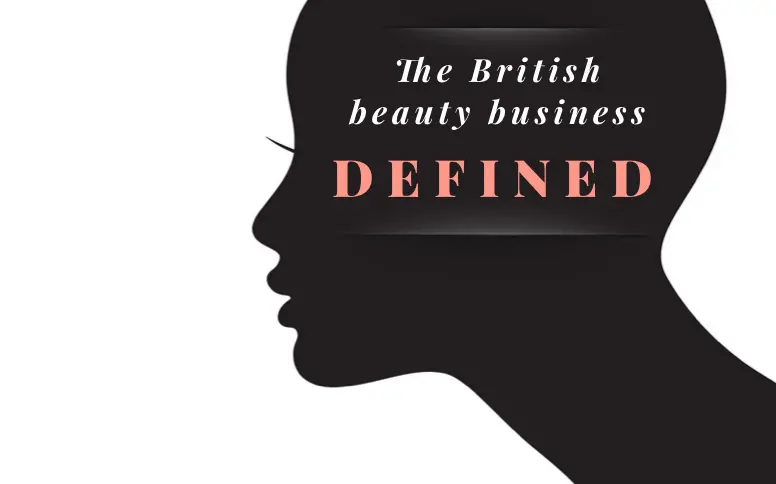As the first industry body to represent all areas of the beauty sector, the British Beauty Council’s initial task has been to create a definition of our business in order to be able to produce a report that demonstrates its real value and impact on the national economy.
We are now able to share the results of our landmark definition of the British beauty business.
Many of us who work in beauty have been frustrated for years by the lack of recognition our business has had from the government, wider economy and consumers, despite the substantial contribution it makes to the British economy. How could there be no government record of the value of a business that is predicted to be worth over £27 billion by 2022 (GlobalData Survey)? That incredible figure, incidentally, focuses only on consumer spend so it is not even representative of the value of the business as whole.
But what is the business as a whole? What defines beauty? This needed to be agreed before we could understand its real value and impact on the national economy.
To assess this we commissioned insight and strategy consultants BritainThinks to assist in developing a definition of the industry by testing a draft version with key stakeholders through October and November last year. So the results of our survey – the definition of the industry and its constituent parts – have been shaped by the opinions of the people who came forward in response to our open invitation and took part in the research that BritainThinks prepared for the Council. The methodology involved:
- A quantitative open-link survey via SurveyMonkey, nine 45-minute qualitative interviews and 90-minute workshops with key industry stakeholders.
- Participation from a broad mix of companies and individuals working in the beauty industry including service providers, manufacturers, marketing, media and retail.
- Drafting industry definition statements to test and refine with key stakeholders to find agreed definitions for products and services.
The landmark definition, created by stakeholders from across the beauty business, will be used by Oxford Economics to produce an economic valuation and impact report of the beauty industry. This valuation, in turn, will enable the British Beauty Council to lobby industry and government for long deserved recognition and support.
[divider height=”30″ style=”default” line=”default” themecolor=”1″]
THE OVERALL DEFINITION
|
SERVICES Beauty and grooming services are professional treatments purchased by consumers to enhance and/or maintain their personal appearance, presence and/or well-being. They will include categories such as treatments and tutorials for hair, nails, face and body, and cosmetic and surgical procedures.
|
PRODUCTS Beauty and grooming products are consumer and professional goods purchased to enhance and/or maintain personal appearance, presence and/or well-being. They will include categories such as cosmetics, skin, hair and body care, personal care and hygiene products, accessories and applications.
|
Participants showed a strong backing for the definition to be as open as possible, including ‘maintenance’ and ‘well-being’, to reflect the multi-dimensional nature of the industry.
- Beauty is felt to go beyond the enhancement of personal appearance and also incorporates ‘maintenance’ products e.g. personal care and hygiene products.
- Well-being is part of a wider health picture and is fundamentally linked to the beauty industry’s overall proposition.
- Grooming is seen as an integral and growing part of the beauty industry and adds to its inclusivity.
[divider height=”30″ style=”default” line=”default” themecolor=”1″]
THE KEY FINDINGS
There is a real enthusiasm for celebrating the success of the British beauty industry; it is seen as innovative, valuable and inclusive.
- The beauty industry is seen as highly entrepreneurial and attracts a diverse range of people regardless of ethnicity, age and background.
- It is an especially empowering environment for women, who make up a disproportionately high number or workers compared to other industries.
- The industry is seen as highly innovative, with many disruptive brands challenging the dominance of bigger organisations.
[divider height=”30″ style=”default” line=”default” themecolor=”1″]
Stakeholders voiced strong support for the role of the British Beauty Council and its mission to measure the industry’s economic contribution and impact, partly in recognition of the industry’s undervalued and disparate nature.
- There is a perception that the industry is seen as frivolous by those outside of the industry.
- The breadth and competitiveness of the industry are seen as preventing various sectors from working together, but stakeholders are enthusiastic about having a representative body to champion the industry and tackle industry challenges.
- Under-regulation has led to poor quality treatments and is damaging to the industry and should be addressed.
- There is a particular concern regarding the popularity of unregulated beauty influencers. However, the enforcement of the recent GDPR regulations is going someway to limit this.
[divider height=”30″ style=”default” line=”default” themecolor=”1″]

Words participants used in response to being asked what sprang to mind when they thought about the British beauty industry.
Immediate associations with the British beauty industry are largely positive, describing it as progressive and successful. Though it is also perceived to be undervalued and under-appreciated, with lack of unity and regulation. There is a prevailing feeling that our business is seen as frivolous. The industry is described as ‘disconnected’, with little communication between sectors. The breadth and competitiveness of the industry are seen as preventing sectors from working together and this exacerbates the issue of being under-valued. Some participants feel the business as ‘mistrusted’, which stems from under-regulation, leading to poor quality treatments, no set standards for qualifications and service provision, lack of impartiality, hidden promotions and advertising via influencers. Innovation and the fast-moving nature of the business is often mentioned. Location-specific services are felt to support the survival of the British high street. The industry is described as open and accessible. It is felt to be empowering for women, to foster creativity and be open to all, regardless of age, ethnicity or background.
[divider height=”30″ style=”default” line=”default” themecolor=”1″]
Despite a range of views from a diverse group of stakeholders, there is widespread support for the definition as it stands.
- An up-till-now siloed industry mind-set, encourages stakeholders to champion their own area of expertise, resulting in divergent views.
- Achieving a definition of the beauty industry poses key questions around the boundaries for inclusion.A clear majority of respondents support the inclusion of almost every product and service tested. The only exception is body modifications where similar proportions oppose as support inclusion.
- On the few occasions where inclusion of a product or service is contested, it is primarily where the beauty industry is seen to overlap with the health and well-being industries. For example, holistic treatments or medical beauty.
- There is a danger that too broad a definition may diminish the organisations’ credibility by creating problems for the eventual use of the valuation, and that certain sectors may contest their inclusion.
[divider height=”30″ style=”default” line=”default” themecolor=”1″]

How participants felt about beauty supplements being categorised as part of the definition of the beauty business
Beauty supplements are a key area of the health v beauty debate. 72% of the participants felt that beauty supplements/ingestibles should be included in the definition. And a small minority of these want to expand on the category. They believe there should be a category of ‘consumables’ to include wellness drinks and diet tablets. They cite ‘nutraceuticals’, ‘nutri-cosmetics’ and ‘beautyceuticals’. One participant comments “the consumer is separating less and less between products in their beauty regime … they are agnostic to the category”. 14% don’t know what they feel on this area. And 14% don’t think ingestibles should be included at all. They think there needs to be a firm line between the pharmaceutical and beauty industries. One participant comments “beauty and ingestible – that’s going down the line of diet and pharma”. Similarly, hygiene and personal care products are regarded as a grey area for the beauty industry. Both are seen as a broad category where ‘beauty’ is not always the primary aim of the products. One participant said “I view beauty as an elevated level of grooming where basics like deodorant or dental care don’t really fit unless unless they are products that [stand out] for their superiority”. Yet over three quarters of the participants think hygiene and personal care products should be included in the definition. ‘Appearance’ and ‘presence’ are thought to be one of the fundamental reasons for maintaining a basic level of hygiene. And there is value in expanding the definition to include personal care and hygiene because they are so widely used.
[divider height=”30″ style=”default” line=”default” themecolor=”1″]
There is strong backing to assess and include the value of the broad variety of peripheral services (enabled activities) that are ultimately financed by the beauty industry.
- These activities include journalism, social media and digital influencers, film/TV/fashion and education.
- It is recommended that a further review is carried out to list the full range of enabled activities to be covered by the report.
[divider height=”30″ style=”default” line=”default” themecolor=”1″]
Next Steps:
The agreed definitions will be used by Oxford Economics to produce an economic valuation and impact report of the beauty industry. This is the Council’s next project. Watch this space.





